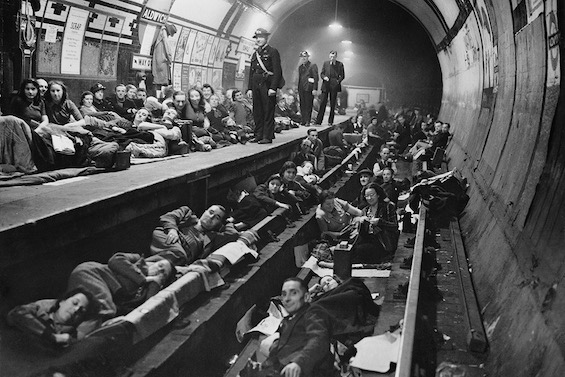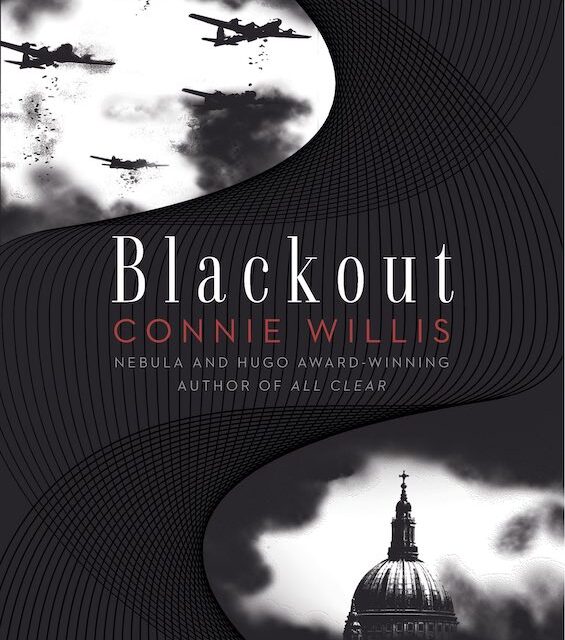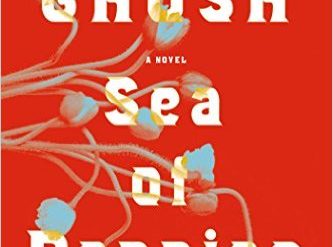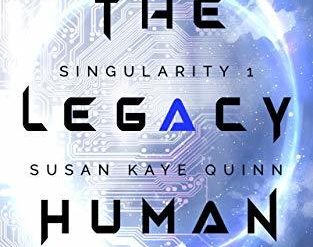
History is often an unreliable guide to the past. Documents go missing or remain classified. Records may be erroneous—or even have been written to be misleading. And historians inevitably build their own prejudices and expectations into their interpretation of past events. How extraordinary it might be, then, for an historian to travel back in time and observe those events in person as they unfold. That’s the conceit at the heart of Connie Willis‘ award-winning novels about mid-21st century Oxford historians who do exactly that. Blackout is the first of a pair of those novels that trace the adventures of three young historians as they travel in time to study World War II as it happened.
Estimated reading time: 4 minutes
The most honored series in science fiction
Technically speaking, Blackout is only half of a very long novel. Willis wraps up the story in All Clear, which was published a few months later. The two volumes together won both the Hugo and Nebula Awards. In a sense, then, they constitute a series of their own. But they conclude the saga of the Oxford time travelers, a series that all together consists of five books. If we count Blackout and All Clear as two novels, then three of the five books in the series won both the Hugo and the Nebula. Which surely must make it the most honored series in science fiction.
Blackout (Oxford Time Travel #4 of 5) by Connie Willis (2010) 650 pages ★★★★☆
Winner of the Hugo and Nebula Awards for Best Novel

What better use might time travel serve?
Time travel, as Connie Willis envisions it, permits an historian to pinpoint a time and place in the past and move there bodily. At Oxford in the year 2060, historians have been returning to the past for many years, and business is brisk. The technicians who manage the process are overworked, as young men and women move back and forth into their chosen periods with great frequency. And so it is that three young historians have together visited many of the most consequential events of World War II under assumed names. On site, they spend weeks or months to become intimately familiar with how the “contemps” responded to the war. Meanwhile, little or no time has elapsed back in Oxford.
Time travel to World War II. All of it.
In their visits to England alone, “Eileen O’Reilly,” “Mike Davis,” and “Polly Sebastian” have managed to get up close and personal with Patton’s ghost army, London’s child evacuees, the Dunkirk rescue, the V-1 attacks, V-E Day, and, most of all, the London Blitz. Willis has done an outstanding job of researching the era. I’ve read a great deal about World War II and couldn’t find a single misplaced fact in the novel’s 650 pages. And the characters of the three central figures of her story are all both engaging and believable.
A word of caution: Willis leaves readers—and her protagonists—hanging at the conclusion of Blackout. To learn what happens next, and to hope for a happy ending, you’ll have to read All Clear.
For more reading
I’ve reviewed the other novel by Connie Willis that won both the Hugo and Nebula Awards: Doomsday Book (A time-travel novel about the Black Death). It’s superb. I’ve also reviewed her novel, The Road to Roswell (An award-winner’s comic alien abduction story).
Be sure to see The best time travel novels.
For more good reading, check out:
- The ultimate guide to the all-time best science fiction novels
- 10 top science fiction novels
- The five best First Contact novels
- 10 best alternate history novels
- Seven new science fiction authors worth reading
- The top 10 dystopian novels
And you can always find my most popular reviews, and the most recent ones, on the Home Page.



























